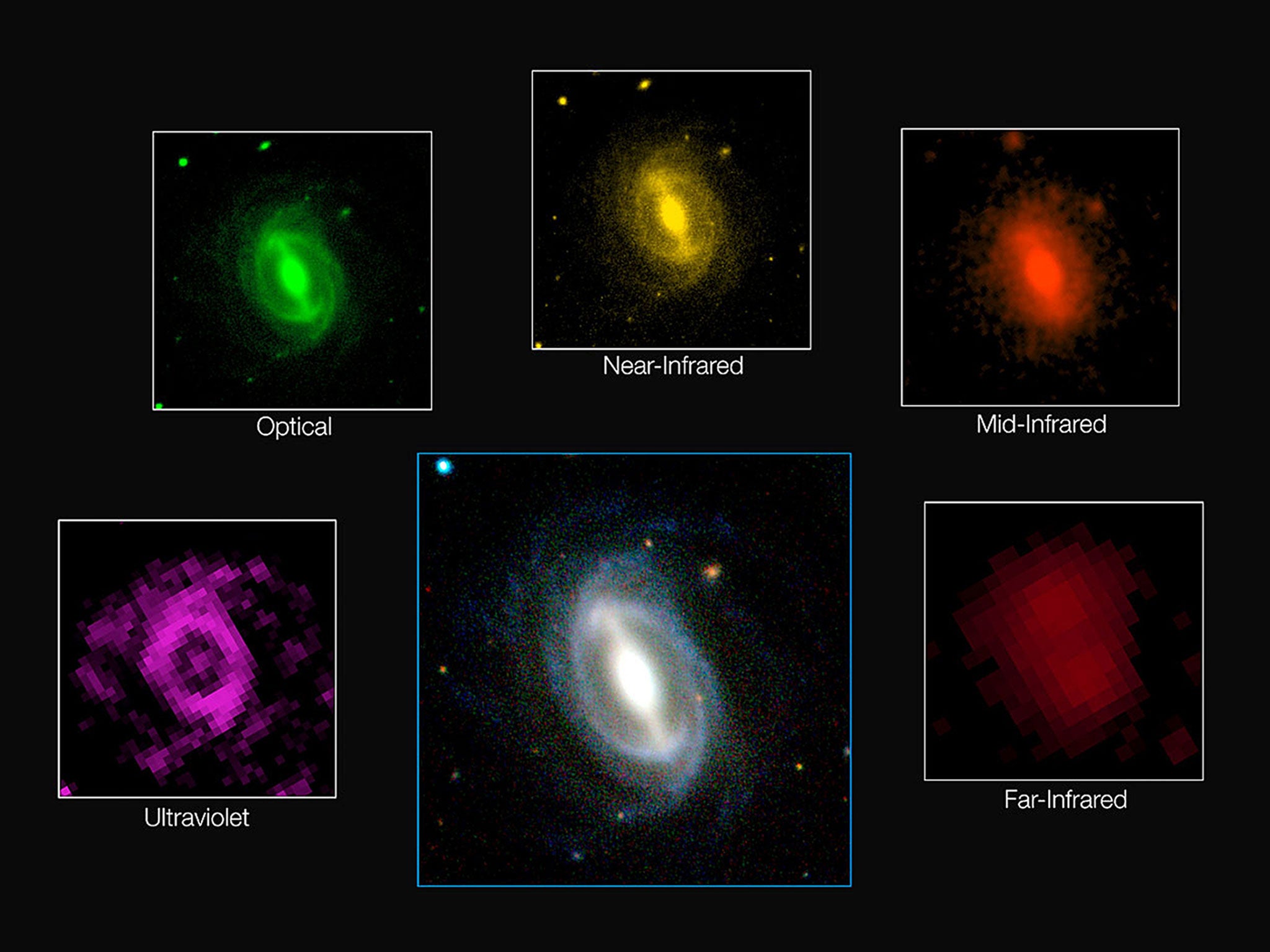Falling energy levels in galaxies mean the Universe is slowly dying, say astronomers
'The universe has basically sat down on the sofa, pulled up a blanket and is about to nod off for an eternal doze'

Your support helps us to tell the story
From reproductive rights to climate change to Big Tech, The Independent is on the ground when the story is developing. Whether it's investigating the financials of Elon Musk's pro-Trump PAC or producing our latest documentary, 'The A Word', which shines a light on the American women fighting for reproductive rights, we know how important it is to parse out the facts from the messaging.
At such a critical moment in US history, we need reporters on the ground. Your donation allows us to keep sending journalists to speak to both sides of the story.
The Independent is trusted by Americans across the entire political spectrum. And unlike many other quality news outlets, we choose not to lock Americans out of our reporting and analysis with paywalls. We believe quality journalism should be available to everyone, paid for by those who can afford it.
Your support makes all the difference.The Universe is slowly dying, according to astronomers who have made a study of the fall in energy levels resulting from the fusion of matter taking place in the nuclear furnaces of the stars of more than 200,000 galaxies.
A wide-spectrum survey of the galaxies has revealed the precise levels of energy generated within an immense segment of space and found that it is only half of what it was 2bn years ago – and that it is continuing to fade.
Previous work had already discovered that the conversion of matter to energy in the cosmos was declining but this is the most detailed survey to date of the sky across a wide range of light wavelengths, astronomers said.
Researchers from the International Centre for Radio Astronomy Research (ICRAR) in Western Australia used seven of the world's most powerful telescopes to observe galaxies at 21 different wavelengths of light, from the far ultraviolet to the far infrared – the most comprehensive audit of the energy output of a nearby part of the Universe.
Initial observations were conducted using the Anglo-Australian Telescope in New South Wales and supporting observations were made by two orbiting space telescopes operated by NASA and another belonging to the European Space Agency, scientists said. The research is part of the Galaxy and Mass Assembly (Gama) project, the largest multi-wavelength survey of space.
"We used as many space and ground-based telescopes we could get our hands on, to measure the energy output of over 200,000 galaxies across as broad a wavelength range as possible," said Professor Simon Driver of the ICRAR, who presented the findings at the International Astronomical Union's General Assembly in Honolulu.
"While most of the energy sloshing around was created in the aftermath of the Big Bang, additional energy is constantly being released by stars as they fuse elements like hydrogen and helium together," Professor Driver says.
All energy in the Universe was created in the Big Bang but a portion of it is locked up in the form of matter, which can be converted into energy as described by Albert Einstein’s famous equation: E=mc2.
"This newly released energy is either absorbed by dust as it travels through the host galaxy, or escapes into intergalactic space and travels until it hits something such as another star, planet, or very occasionally a telescope mirror,” Professor Driver said.
"The Universe will decline from here on in, sliding gently into old age. The Universe has basically sat down on the sofa, pulled up a blanket and is about to nod off for an eternal doze," he said.
The team of researchers hope to expand the work to map energy production over the entire history of the Universe, using a swathe of new facilities, including the world's largest radio telescope, the Square Kilometre Array, which is due to be built in Australia and South Africa over the next decade.
Astronomers estimate that the Big Bang, when the Universe was created, took place about 13.8bn years ago. The stars and galaxies are still expanding at an accelerating rate, suggesting there is a mysterious “dark energy” overcoming the unifying effects of gravity.
However, some cosmologists believe that gravity will eventually win out as dark energy runs out of steam, which will eventually begin to pull all the matter of the Universe together over billions of years, ending in something called the Big Crunch.
Join our commenting forum
Join thought-provoking conversations, follow other Independent readers and see their replies
Comments